I'm not going to lie, this is where things start to get complicated. Pathfinder is a game that allows a great deal of customization, and with a great deal of options comes a great deal of variety. There are over 20 playable races, a total of 27 classes, and that is just the start. You have prestige classes, class archetypes, feats, skills, traits, spells, and other class abilities to choose from. To put it mildly it's easy to fall down a rabbit hole when trying to find the character you want to play. But the upside of this much choice is you can build pretty much any kind of character you can think of. Conan? Barbarian class with a Savage Barbarian archetype. Captain America? Brawler with a Shield Champion archetype. Killer Croc? A scaleheart barbarian with the Brutal Pugilist archetype. I could go on and on. But I'm going to introduce you to a class called "Occultist". This is a character that has access to psychic magic, but not through any abilities of their own. They gain access to magical implements that grant them the ability to cast spells, polymorph their body, and lots of other fun things. I built an Occultist years ago and I love the class because they play like the comic book character Constantine. You're stuck in a world where all these fantastical things are happening, but you're just an ordinary guy. You've got to study, collect artifacts and find out how they work. In return you gain access to unique magics noone else has.

How Do You Build A Character?
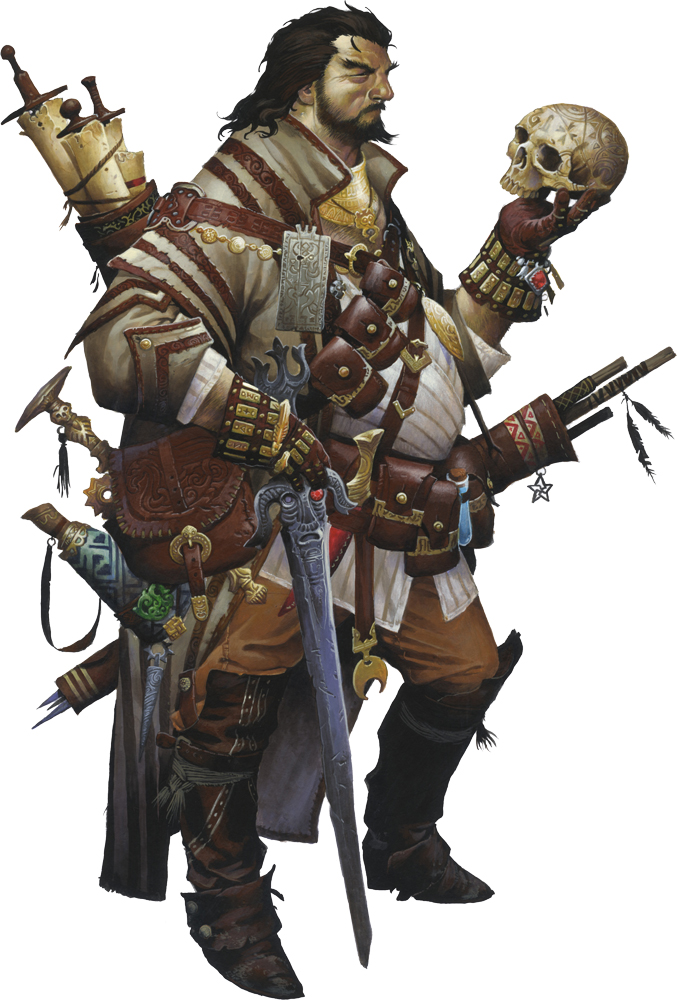
So where do we start?
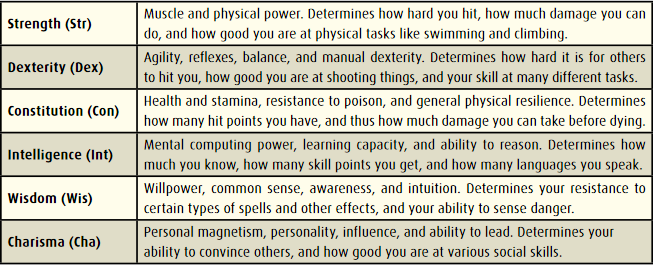
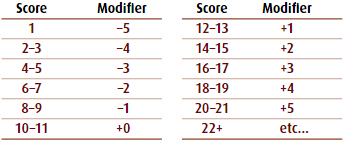
What you have here is an explanation of what the ability scores are. You have 6 of them, 3 physical (Strength, Dexterity, Constitution) and 3 mental (Intelligence, Wisdom, Charisma). Every character is different, and every class has different needs for each ability score. By far the most important ability for an Occultist is his intelligence. This grants him access to use the magical powers he will find, and also determines how strong they are. From there it really is up to you which abilities you choose to focus on. Is your occultist mainly casting spells instead of hitting things? You don't need a high strength or constitution. Is he someone who does all the talking, convincing others to do what he wants? Better give him a good charisma then. Or maybe the character you picture is an man of few words, someone who likes to hit things when he gets angry. He has little need for fancy talk and gets his way out of trouble with his trusty mace. Give him a low charisma and focus on his strength and constitution so he can stand his ground in a fight.
There's different ways to generate your ability scores, and one of them is to roll 3 6-sided dice and write down the number. Do this until you have 6 different numbers, and choose what numbers go where. Because of the law of averages, most of your numbers will be close to 10. That's fine because 10 is average, no bonus and no penalty. But you will have higher and lower numbers too. Decide the kind of character you want to play and put your numbers in the abilities you think are most important first. Lets say you got lucky on one roll and got a 16. Let's say you put that 16 in strength. On the table above you can see that it gives you a +3 on any roll associated with strength. Climbing, swimming, most importantly hitting something with your mace. You add 3 to your attack roll to see if you hit, and you add 3 to the damage you do (assuming you hit). Now most likely you will have a number below 10. That is going to give you a penalty on everything associated with that ability. let's say you choose to put your 7 in dexterity. This will make you a pretty clumsy person. Every time you try to dodge a hit, or jump across a gap in the floor, or shoot someone with a bow you take 2 away from your roll.
That might sound frustrating, but it is actually one of the funner parts of role playing. Just like everyone has something they are good at, everyone has things they just can't seem to do well. Use that as inspiration when playing your character to give him a little individuality. Make a joke of it, or lean into it and make it part of who they are. With a 7 dexterity, maybe you are now playing someone who injured their knee, and it just never healed right. Now you have some background to work with. I bet someone like that would be more cautious in the future, not take as many risks so he doesn't get hurt like that again. You get to decide what these numbers mean on your sheet, get creative and make your character seem real.
How Does The Class I Play Affect My Character?
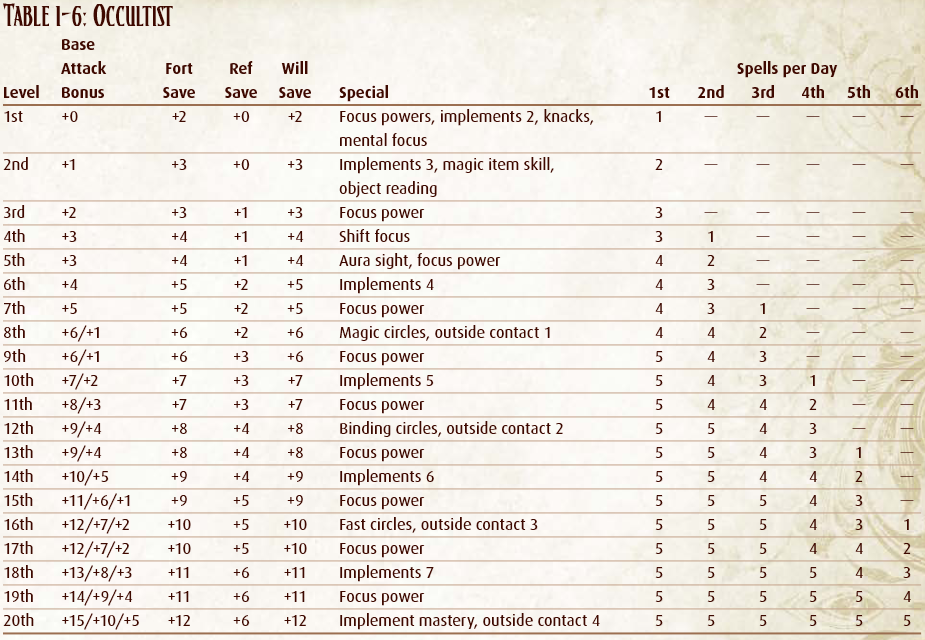
There's a lot going on in that table so let me explain. This kind of table you will find associated with every class. It tells you how strong you are as you grow and how your abilities are unlocked. At first level you can see that this character has a Base Attack Bonus of 0, that means every time he attacks he adds a 0, easy enough right? By 10th level he is adding a 7 to every roll. You can also see that at level 8 and level 15 there are more numbers added. That is showing how many times this character is attacking and what number is added to each subsequent roll.
Next are the "saving throws". Sometimes you have to roll a die to see if your character is able to succeed against an outside threat. Like if a spell is cast at you, or you have to dodge a falling boulder, or you get poisoned. You will roll a 20-sided die and add the relevant number to the roll. You also get to add the ability modifier associated with that saving throw, like your dexterity modifier helps you (or hinders you) in getting out of the way of that boulder. Whatever the threat is will have a target number (like a 14) you have to roll against. The more dangerous something is the higher the number. As you grow in levels you can see the bonuses get larger, some more than others. The occultist for example becomes strong willed and more fortified as he grows, but nothing about his class particularly makes him more nimble.
Then you will have a category of "Special". These are abilities and powers unique to that class. Unless their class has something similar (usually not) there is no way for another character to do that thing (like an occultist's focus power). Not every character get spells, but as he progresses, the occultist gains access to a limited number of spells, unique to his class.
Where Do I Go From Here?
From here things get really in the weeds. There's too many options for feats to go over here, and other things like traits to pick and skill points to distribute. What I like to do when picking things is to gather a whole bunch of options I like, then narrow it down from there organize what I think is more important
Feats that I like
- power attack
- weapon focus
- toughness
- iron will
- spell focus
- point blank shot
- precise shot
- dodge
- combat reflexes
What feats to take at level
- toughness
- power attack
- iron will
- combat reflexes
- dodge
Where It All Comes Together ... The Character Sheet
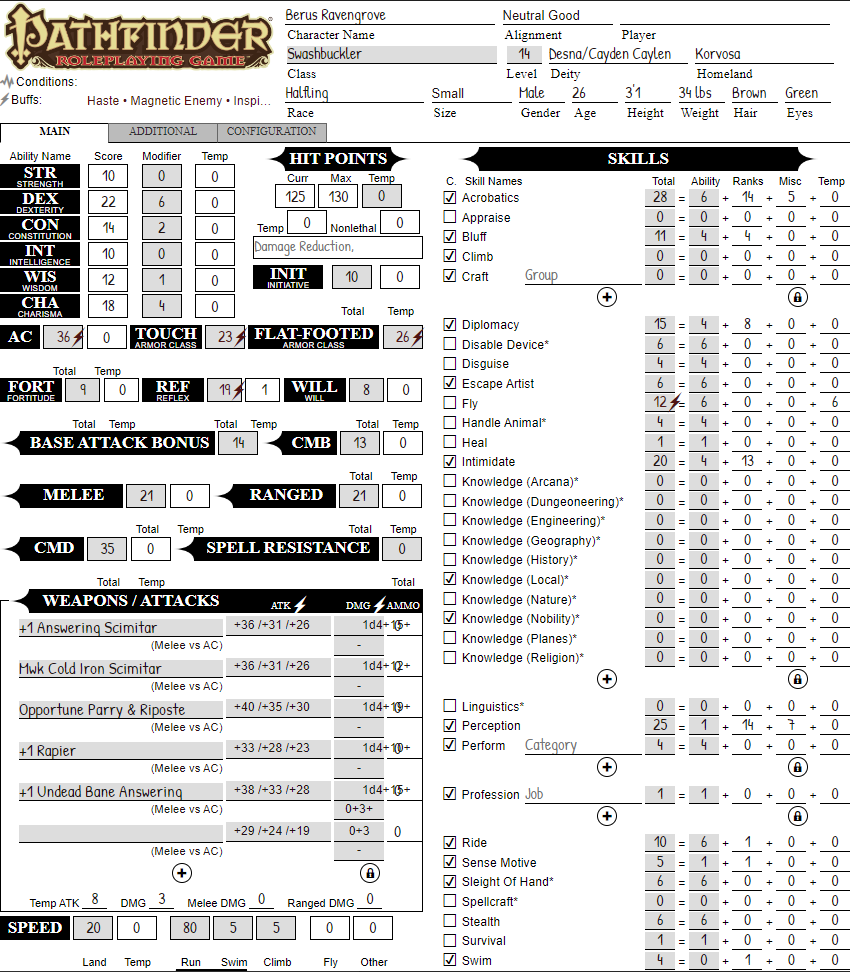
This is an example of a character sheet for a 14th level character of mine. There's a lot of math going on here, in combat Pathfinder really is a numbers game. You fill in what you have, and then add the base with the modifier to get a final number. That's how it works for pretty much every field on the sheet, except for the ability scores and the base attack bonus.
The nice thing is you only have to add everything up once. Then all you need to do is roll the 20-sided die and add the number on the sheet. Combat moves really fast in this game, all this kind of detail work happens before the game. Once it starts it's nothing but fun. I recommend for the first character you build to have someone help. I can put all the numbers for a character on the page within 20 minutes, all you would have to do is come up with who it is you want to play.